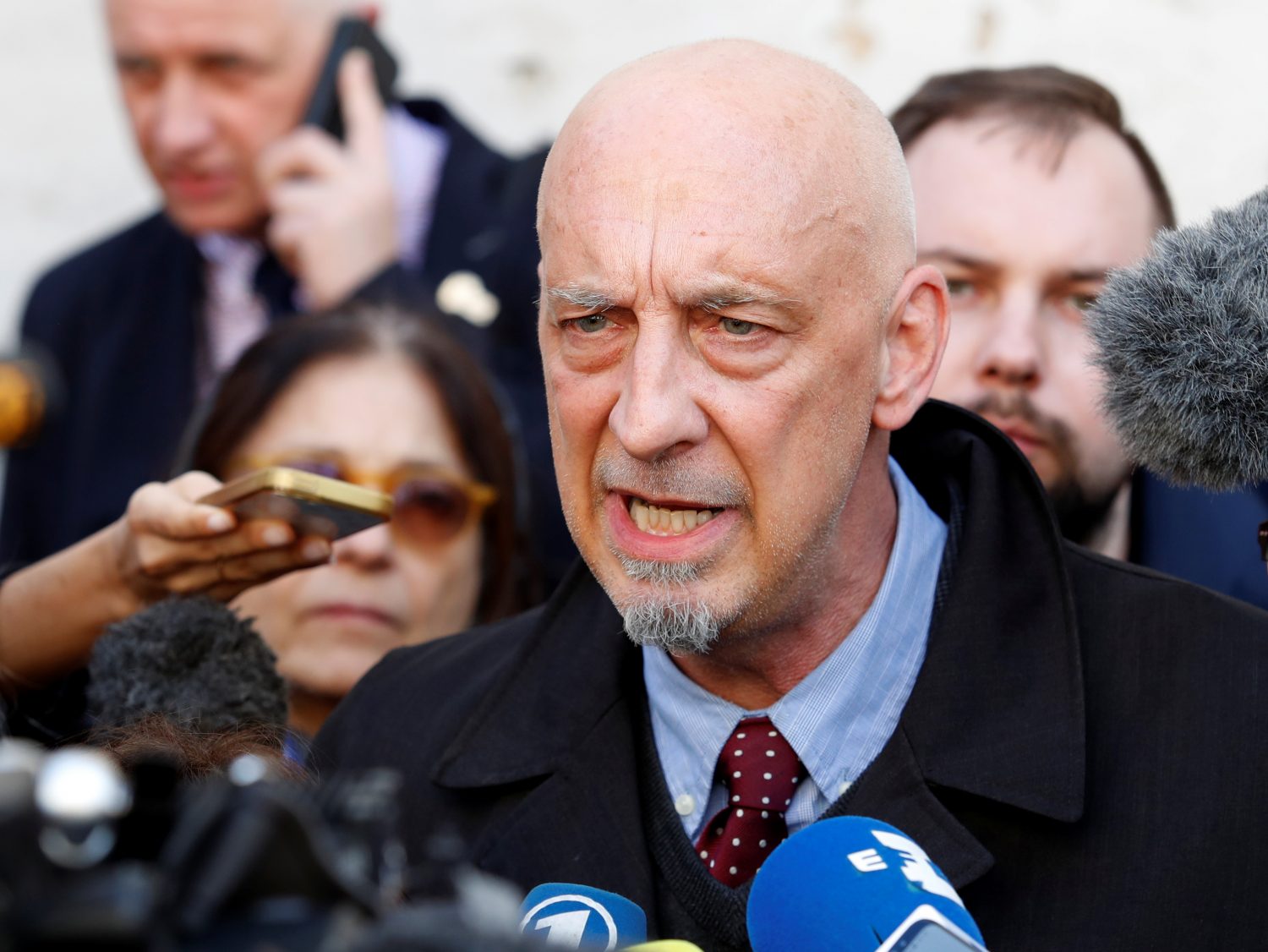
By Brendan Pierson
NEW YORK (Reuters) – Women who say Jeffrey Epstein sexually abused them voiced anger and defiance in a packed New York courtroom on Tuesday during a dramatic hearing less than three weeks after the financier killed himself while awaiting trial on sex trafficking charges.
“I feel very angry and sad that justice has never been served in this case,” Courtney Wild, one of the women, told the hearing before U.S. District Judge Richard Berman.
“I will not let him win in death,” another woman, Chauntae Davies, told the court.
Federal prosecutors appeared at the hearing to ask the judge to formally dismiss their case against Epstein.
Berman explained why he gave the women and their lawyers an opportunity to address the court.
“The victims have been included in the proceeding today both because of their relevant experiences and because they should always be involved before, rather than after, the fact,” Berman said at the outset of the hearing.
Epstein, who once counted U.S. President Donald Trump and former President Bill Clinton as friends, was arrested on July 6 and pleaded not guilty to federal charges of sex trafficking involving dozens of girls as young as 14.
The 66-year-old was found dead Aug. 10 in his cell at the Metropolitan Correctional Center (MCC) in Lower Manhattan. An autopsy concluded that he hanged himself.
Davies said she was hired by Epstein to give massages. The financier raped her the third or fourth time they met on his private island and continued to abuse her, Davies said.
Another woman, who chose not to give her name, said Epstein’s death must be investigated.
“We do need to know how he died. It felt like a whole new trauma. … It didn’t feel good to wake up that morning and find that he allegedly committed suicide,” she said, holding back tears.
Another unnamed woman said she came to New York to become a model and was victimized by Epstein.
“I’m just angry that he’s not alive to have to pay the price for his actions,” she said.
Berman ordered prosecutors and defense lawyers for Epstein to appear in court after the Manhattan U.S. Attorney’s office said it wanted to dismiss the indictment against the financier in light of his jail cell death.
‘CURIOUS’ DEATH
During the hearing, attorney Brad Edwards, who represents women who say they were sexually abused by Epstein, said, “I have in the courtroom today 15 victims I represent and have represented over the years. There are at least 20 more who didn’t make this hearing today.”
Edwards said Epstein’s “untimely death” was “curious,” adding: “More so, it makes it absolutely impossible for the victims to ever get the day in court that they wanted, and to get full justice. That now can never happen.”
At the hearing, Assistant U.S. Attorney Maurene Comey said the law required the dismissal of the case in light of Epstein’s death, but said the government’s investigation was ongoing.
“Dismissal of this indictment as to Jeffrey Epstein in no way prohibits or inhibits the government’s ongoing investigation into potential co-conspirators,” Comey said.
Epstein’s death has triggered investigations by the FBI, the U.S. Department of Justice’s Office of Inspector General and the U.S. Bureau of Prisons, which runs the detention facility.
Epstein’s arrest in New York came more than a decade after Epstein avoided being prosecuted on similar federal charges in Florida by striking a deal that allowed him to plead guilty to state prostitution charges.
That deal, which has been widely criticized as too lenient, resulted in Epstein serving 13 months in a county jail, which he was allowed to leave during the day on work release.
Brittany Henderson, a lawyer with Edwards’ firm, read a statement from another victim, Michelle Licata.
“I was told then that Jeffrey Epstein was going to be held accountable, but he was not,” she said of the earlier investigation. “The case ended without me knowing what was going on. … I was treated like I did not matter.”
Multiple women have filed civil lawsuits against Epstein’s estate since his death, saying he abused them and seeking damages. Some have alleged the abuse continued after his plea deal and even while he was on work release from his previous jail sentence.
Just two days before his death, Epstein signed a will placing all of his property, worth more than $577 million, in a trust, according to a copy of the document seen by Reuters.
(Reporting By Brendan Pierson in New York; Editing by Noeleen Walder and Will Dunham)












